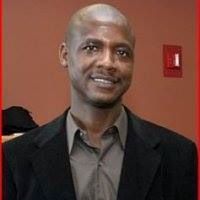Alagi Yorro Jallow.
Fatoumatta: The Gambia is bigger than the media headlines you listen to, your beer parlor gists, and all the fake news/conspiracy theories and opinions you feed your mind with online every day from echo chambers and political propagandists. The Gambia is more significant than your keyboard and timeline.’ The Gambia will outlive all of us.
History, mythology, and folktales are filled with stories of people punished for telling the truth. Only the Fool, exempt from society’s rules, is allowed to speak with complete freedom. You cannot stop a camel from drinking restoration water. If you cannot argue the law, the facts, and if you cannot argue on the facts or points, argue on logic or on commonsense, or you keep quiet and listen to those who know to tell those who do not know. That is the dictum being applied where respect and tolerance are observed.
Fatoumatta: I think If you want to argue, debate on the law, public policy, politics, or the discussion on ideology, or defend an ideal economic or political model or supporting the new deal of Capitalism or Socialism or vice versa and why Socialism failed and on the folly of Capitalism? Please “Do your research” and desist from misinformation and propaganda campaigns by not copying and pasting also regurgitating many fake quotes, concepts, theories, and political thinkers from someone else opinion or publication; this can be googled out of existence in about 5 seconds.
Here is the thing. Research is a learned skill; it is intricate, nuanced, and complex, and, indeed, most people would not even know where to begin or even how to do their research.
Research is NOT:
Googling, scrolling your Facebook newsfeed, or watching YouTube, or visit rely upon Wikipedia or conspiracy theory websites to search for the results you are hoping to find to be “true.” These are called confirmation biases and are quickly and easily ruled out when doing actual research.
A post credited to Linda Gamble Spadaro, a licensed mental health counselor in Florida, sums this up quite nicely:
“Please stop saying you researched it.
You did not research anything and probably do not know how to do so, only to copy and paste for propaganda.
Did you compile a literature review and write abstracts on each article? Or better yet, did you collect a random sample of sources and perform independent probability statistics on the reported results? No?
Did you take each article one by one, look into the source (the author, publisher, and funder), and then critique the writing for logical fallacies, cognitive distortions, and plain inaccuracies?
Did you ask yourself why this source might publish these particular results? Did you follow the trail of references and apply the exact source of scrutiny to them?
No? Then you did not…research anything. You read or watched a video, most likely with little or no objectivity. You came across something in your algorithm manipulated feed, something that jived with your implicit biases and served your confirmation bias, and subconsciously applied your emotional filters and called it proof.”
Fatoumatta: This does not even go into institutional review boards (IRB’s), independent ethics committees, ethical review boards, or touch on peer review or meta-analyses.
To sum it up, a healthy dose of skepticism is/can be a good thing…as long as we apply it to those we wish/think to be accurate, and not just those we choose to be skeptical towards or in denial of.
Most importantly, though, is to apply our best critical thinking skills to ensure we are doing our best to check out the facts from the fiction, the myths, and outright BS in pseudoscience and politics. Misinformation is being used as a tool of war and to undermine our public health, and it is up to each of us to fight against it.





Ma sha Allah great and thanks for sharing